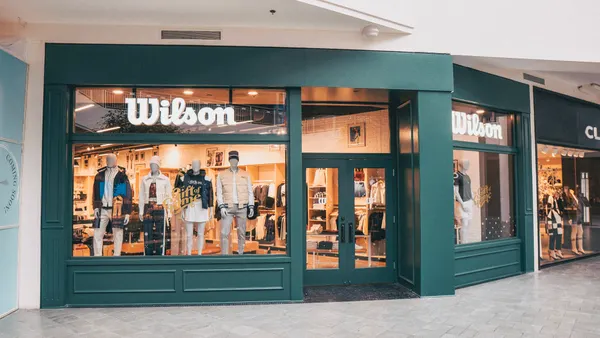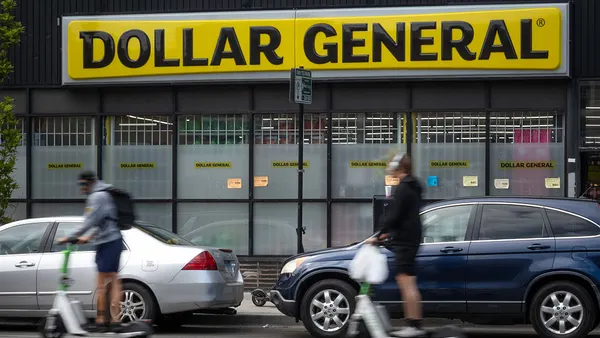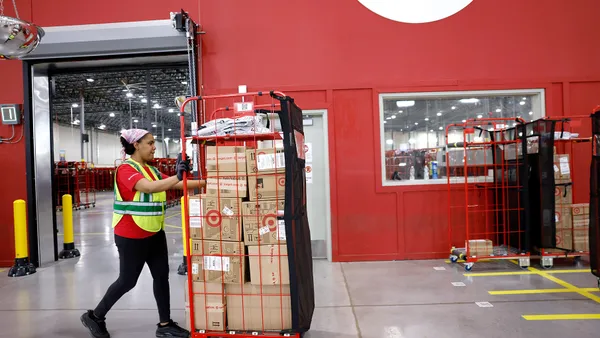Lord & Taylor’s new owners have barely embarked on a comeback plan for the nearly 200-year-old department store, but step one has already been accomplished: reinstating its iconic, sweeping cursive logo.
Saadia Group, which acquired the department store during a bankruptcy auction four years ago and ran it until early this year, in 2022 had replaced the familiar, idiosyncratic logo with a Helvetica font. Saadia relinquished Lord & Taylor’s intellectual property, and that of other brands, after a New York County court in February found it was in default on more than $45 million in debt.
Sina Yenel, chief strategy officer at Regal Brands Global, which now runs Lord & Taylor, calls the disposal of the classic logo in 2022 “the biggest betrayal of the brand.”
“I understand going after young customers, but this is not a startup,” Yenel said, speaking by video conference. “This is a brand that’s been out here for 198 years. Lord & Taylor has such a huge profile, among different generations and different cultures.”
Along with the return of the historic logo, Regal Brands’ new 75-person Lord & Taylor retail team is working on a merchandising strategy based on elevated style, without being super-luxury, and eschewing fast fashion. Contrary to reports published elsewhere, it will not be an off-price business. While there are plans to use drop-shipping for fulfillment, the company won’t be a marketplace, either, according to Yenel.
“Lord & Taylor always brought the best stories, the best experiences to people,” Yenel said, adding that much of retail now lacks such “fun and entertainment” — and human connection.
Without stores, such intangibles will be more difficult to convey. But according to Yenel, tech updates will help revamp the retailer’s e-commerce site. To make high-touch interactions easier remotely, customer service will be based in the U.S. However, returning to brick and mortar is part of the plan, if only in the long run. Plus, because Lord & Taylor is employing a licensing model, brick-and-mortar opportunities like shop-in-shops and pop-ups could happen sooner, according to Yenel.
It’s been a while since Lord & Taylor had any sort of physical presence — its Manhattan flagship was sold to WeWork and then Amazon following its bankruptcy filing — and its suburban mall stores have also disappeared. But Lord & Taylor’s IP has also been on quite a journey in the past few years. In 2019, fashion rental company Le Tote acquired Lord & Taylor for $75 million, just before the pandemic roiled the industry, and Saadia Group snapped up Le Tote about a year later for $12 million.
This year, Lord & Taylor’s IP — along with that of New York & Company, Lerners, RTW Retailwinds and Fashion to Figure — was part of the cache of assets forfeited by Saadia. In that process, various Lord & Taylor trademarks, domains and IP were later sold for $1.5 million to an entity called ADJHA LT, affiliated with Harry Adjmi, per court documents. ADJHA LT now holds at least some of those rights, per the U.S. trademark office. Adjmi is founder of apparel wholesale company One Step Up.
Regarding the venture with Regal, terms of the latest deal are undisclosed, according to family office firm Parkrise Capital, the investor behind Regal Brands Group. As of August, Regal is the sole owner of the Lord & Taylor trademark, according to a Parkrise spokesperson. The trademark registration has not yet been updated: Neither Regal nor its Lord & Taylor operation is affiliated with ADJHA LT or Adjmi.
This all makes Lord & Taylor both the oldest department store in America, and the newest, with Yenel working in the last six months on market research and assembling an experienced team. Vendors are being onboarded now and are enthusiastic; preparation for a “soft launch” that includes home, dresses and footwear has begun, Yenel said.
“There are good things about being small. We can make decisions in an instant and that gives us a lot of flexibility,” Yenel said. “Lord & Taylor should be about fashion that is going to last.”














